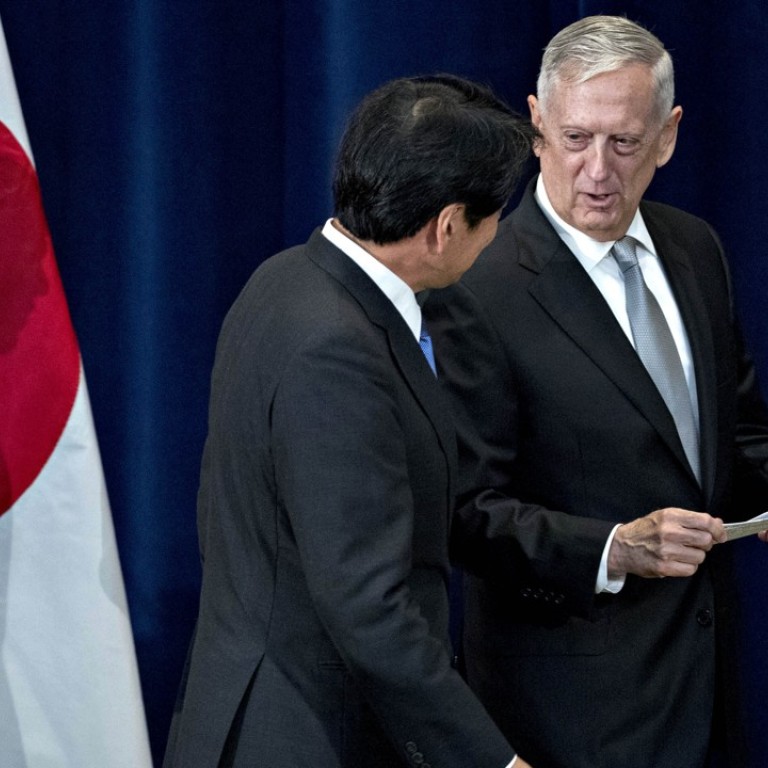
US vows ‘immediate and specific action’ to intercept missiles if North Korean fires at allies
The comments by US defence chief James Mattis came as Washington and Pyongyang appeared to start toning down their mutual military threats
The US will take immediate and specific actions to intercept any North Korean missile fired at US allies, US Defence Secretary James Mattis said on Thursday.
“We would take immediate, specific actions to take it down,” Mattis said in response to a question asked during a press conference in Washington following an annual high-level meeting of the US’s and Japan’s foreign and defence ministers, according to South Korean Yonhap News agency.
Mattis’ comments came as Washington and Pyongyang appeared to begin to de-escalate their military threats against each other. US President Donald Trump praised North Korean leader Kim Jong-un for making a “very wise and well-reasoned” decision to back down from a plan to mount a missile strike near the US Pacific island territory of Guam, two days after Kim reportedly said he would take “a little more” time before giving any order.
Colonel Rob Manning, a Pentagon spokesman, told the South China Morning Post earlier this week at a press briefing that deploying the US’s Terminal High Altitude Area Defense, or THAAD anti-ballistic missile defence system on the Korean Peninsula, was “one of the options” being considered to shoot down a North Korean missile.
Manning said that THAAD “got initial intercept capability and they continue to build on that capability” in early May. THAAD can intercept short, medium, and intermediate-range missiles.
Lieutenant Colonel Christopher Logan, a Pentagon spokesman for the US Pacific Command, told the Post on Monday that he would not “speculate in regard to what [US’s] response would be” if North Korea executed its Guam strike plan.
At the so-called “2+2” meeting in Washington, Mattis, US Secretary of State Rex Tillerson and their Japanese counterparts – Japanese Defence Minister Itsunori Onodera and Foreign Minister Taro Kono – also agreed to step up their defence cooperation in the North Korean threat.
The two sides reaffirmed their “mutual commitment to confronting threats to regional peace and security”, according to Tillerson. They agreed that North Korea’s missile launches, including two tests of intercontinental ballistic missiles in July, are “unacceptable provocations” that “must stop immediately”.
“In light of the threat of North Korea, the four of us confirmed the importance of the unwavering US commitment to extended deterrence,” Onodera said.
In an interview with The American Prospect published online on Wednesday, Trump’s White House adviser Steven Bannon also said: “There’s no military solution [to North Korea’s nuclear threats], forget it.
“Until somebody solves the part of the equation that shows me that 10 million people in Seoul don’t die in the first 30 minutes from conventional weapons,” Bannon continued, “I don’t know what you’re talking about, there’s no military solution here, they got us.”
Fan Changlong, a vice-chairman of China’s Central Military Commission, told the visiting US Joint Chiefs of Staff General Joe Dunford this week in Beijing that China believed the only effective way to resolve the North Korean issue was through talks.
“China believes that dialogue and consultations are the only effective avenue to resolve the peninsula issue, and that military means cannot become an option,” Fan said, according to China’s Defence Ministry.
Additional reporting from Reuters

